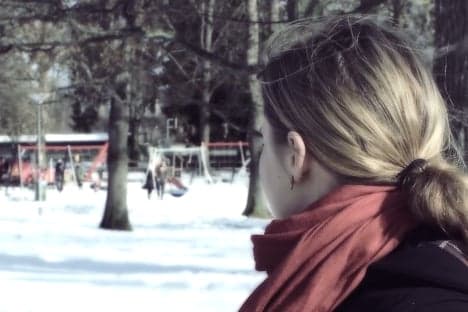HIV in Sweden today is not like it was yesterday
The number of people in Sweden with HIV increases every year, but many misconceptions remain about the disease and how it affects people’s lives.

The treatment of HIV is now so effective that it can reduce virus levels to practically zero and minimise the risk of transmission.
A growing number of people in Sweden now live with HIV, yet ignorance about what this means can lead to discrimination. This is why we need to increase public awareness.
At hividag.se you can find out more about what life is like for people with HIV today. HIV is no longer a fatal disease but a chronic, treatable infection where an early intervention allows a long life expectancy for people living with HIV in Sweden today.
“I view HIV as any other chronic illness like diabetes or high blood pressure,” says Anna-Mia Ekström, a specialist in infectious diseases and HIV researcher at Karolinska Institutet, in the promotional film for the hividag.se campaign (see below).
“You can live a perfectly full and healthy life.”
HIV infection, or HIV as the disease is normally known, is caused by a virus. HIV stands for Human Immunodeficiency Virus.
Click here to learn more at hividag.se
In the beginning, you will not necessarily perceive any problems if you have contracted HIV. The disease is especially infectious during the first months after infection. Symptoms can be similar to those of influenza and normally disappear after a week or so. However, the infection continues, undetected, to weaken the body’s immune system.
Sweden’s Public Health Agency is the national coordinator of HIV prevention, a task that also includes reducing the stigma and discrimination associated with the infection.
“You can’t tell from looking at someone if they have HIV,” Ekström explains.
“You don’t have to lead any particular lifestyle, you don’t have to be promiscuous or a drug user.”
There is no vaccine or cure for HIV. There is however effective medicine today that stops the progression of the disease and prevents the destruction of your immune system if administered in time, thus also preventing the development of AIDS (Acquired Immune Deficiency Syndrome).
“AIDS is not a chronic condition that you always have – you recover from it, and then go on to live your life with you chronic HIV infection,” says Ekström.
“Most people who get HIV today and get effective treatment never get AIDS.”
As the treatment does not cure the disease, it must continue throughout the person’s life.
“As the number of people in Sweden with HIV is steadily increasing by four to five-hundred people per year, people who are HIV positive will become more common,” she adds.
A test is the only way to find out if you have HIV or not. The earlier an HIV infection is detected, the earlier treatment can start and damage to the immune system minimised.
“HIV tests should be available at healthcare centre and youth clinics and it must be possible to take one anonymously,” says Ekström.
An ongoing asylum process is not affected if you should be diagnosed with HIV when you are tested.
You can find your nearest clinic on www.1177.se or ring 1177 and choose # 5.
For more information about the information campaign HIV Today, please contact the Public Health Agency of Sweden (Folkhälsomyndigheten) at [email protected]
This article is sponsored by hividag.se.
This content was paid for by an advertiser and produced by The Local's Creative Studio.

Join the conversation in our comments section below. Share your own views and experience and if you have a question or suggestion for our journalists then email us at [email protected].
Please keep comments civil, constructive and on topic – and make sure to read our terms of use before getting involved.
Please log in here to leave a comment.